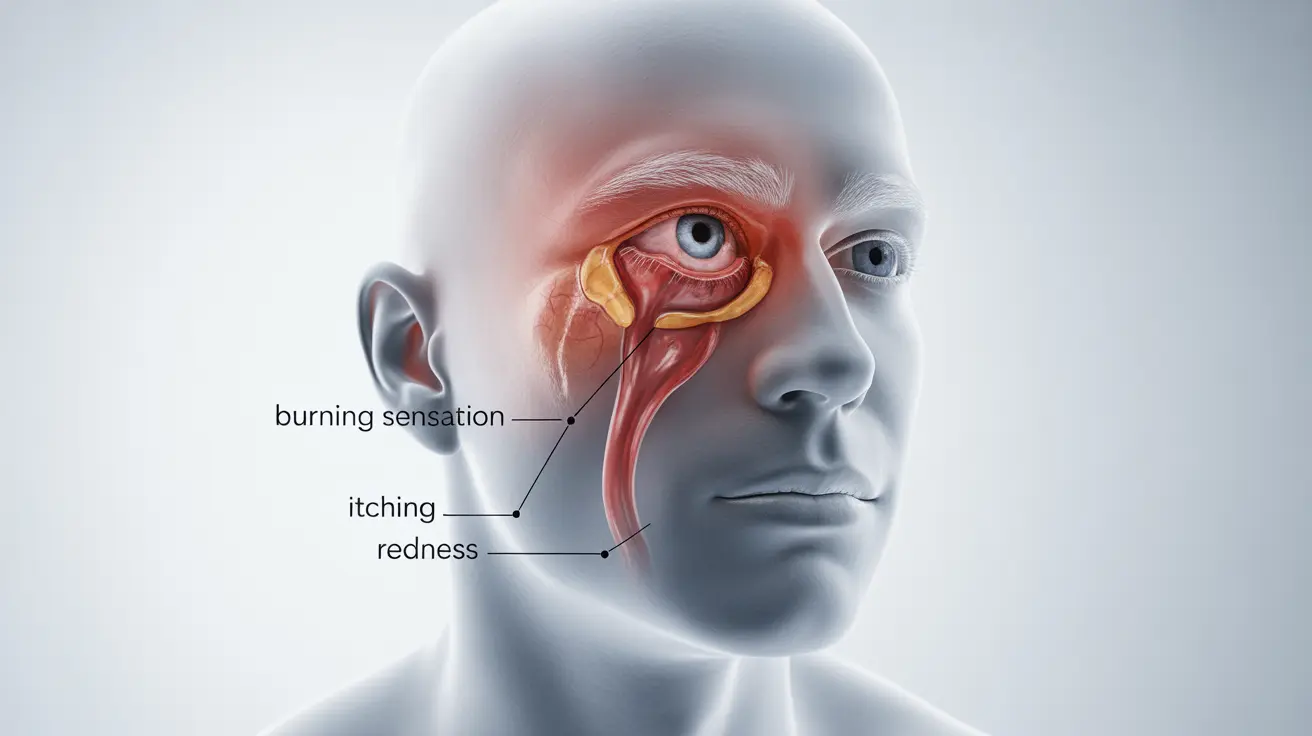When your eyes feel irritated and uncomfortable, determining whether you're dealing with dry eye syndrome or eye allergies can be challenging. Both conditions share some similar symptoms, but understanding their distinct characteristics is crucial for finding the right treatment and relief.
In this comprehensive guide, we'll explore the key differences between dry eye and eye allergies, helping you better understand these common eye conditions and their appropriate treatments.
Understanding the Symptoms: Dry Eye vs Allergies
While both conditions can cause discomfort, they present with distinct symptom patterns that can help identify the underlying cause:
Dry Eye Symptoms
Dry eye typically causes:
- Burning or stinging sensation
- Feeling like there's something in your eye
- Stringy mucus around the eyes
- Difficulty wearing contact lenses
- Eye fatigue
- Blurred vision that improves with blinking
Eye Allergy Symptoms
Eye allergies often present with:
- Intense itching
- Watery eyes
- Redness
- Swollen eyelids
- Dark circles under the eyes
- Sensitivity to light
Root Causes and Triggers
What Causes Dry Eye?
Dry eye syndrome occurs when your eyes don't produce enough tears or when tears evaporate too quickly. Common causes include:
- Age-related changes
- Extended screen time
- Certain medications
- Medical conditions like rheumatoid arthritis
- Environmental factors like air conditioning
- Hormonal changes
What Triggers Eye Allergies?
Eye allergies are an immune system response to specific triggers, including:
- Pollen
- Dust mites
- Pet dander
- Mold spores
- Environmental irritants
- Seasonal changes
Treatment Approaches
Managing Dry Eye
Treatment for dry eye typically focuses on maintaining proper eye lubrication:
- Artificial tears and lubricating eye drops
- Prescription medications to increase tear production
- Punctal plugs to prevent tear drainage
- Lifestyle changes like taking screen breaks
- Omega-3 supplements
Treating Eye Allergies
Allergy treatment aims to reduce immune system response and provide relief:
- Antihistamine eye drops
- Decongestant drops
- Allergy medications
- Avoiding known allergens
- Cold compresses
- Regular cleaning of bedding and living spaces
When to Seek Professional Help
Consider seeing an eye care professional if you experience:
- Severe eye pain
- Persistent symptoms despite over-the-counter treatments
- Vision changes
- Symptoms that significantly impact daily activities
- Uncertainty about which condition you're dealing with
Frequently Asked Questions
What are the main symptoms that help distinguish dry eye from eye allergies? Dry eye typically causes burning, stinging, and a gritty sensation, while eye allergies are characterized by intense itching, watery eyes, and swollen eyelids. The presence of itching is usually more indicative of allergies than dry eye.
What causes dry eye compared to the causes of eye allergies? Dry eye is caused by inadequate tear production or rapid tear evaporation, often due to age, medications, or environmental factors. Eye allergies are immune responses to specific triggers like pollen, dust, or pet dander.
How are dry eye and allergic eye symptoms treated differently? Dry eye treatment focuses on maintaining eye moisture through artificial tears and medications that increase tear production. Allergy treatments typically involve antihistamines, decongestants, and avoiding allergen triggers.
Can eye allergies lead to dry eye or worsen dry eye symptoms? Yes, eye allergies can contribute to dry eye symptoms. Antihistamines used to treat allergies can reduce tear production, potentially causing or worsening dry eye conditions.
When should I see a doctor to get a proper diagnosis between dry eye and eye allergies? Seek medical attention if symptoms persist despite over-the-counter treatments, if you experience severe eye pain or vision changes, or if you're unsure which condition you're dealing with. A proper diagnosis is essential for effective treatment.




